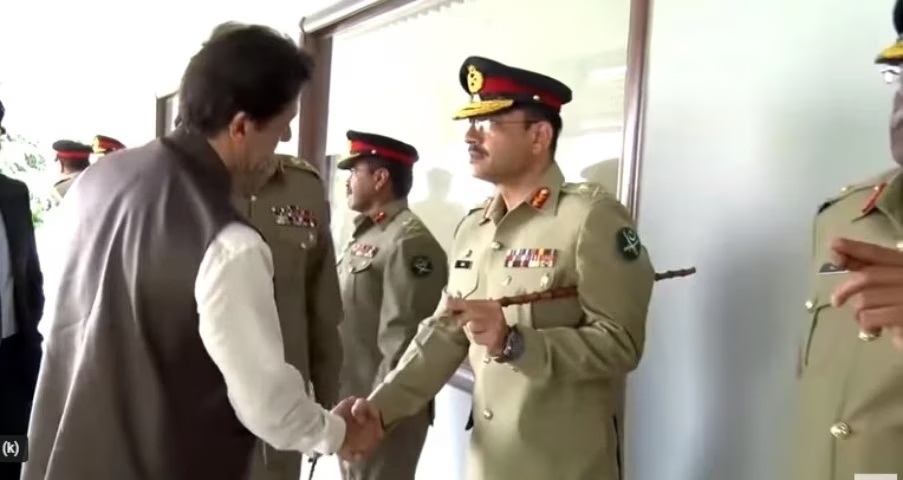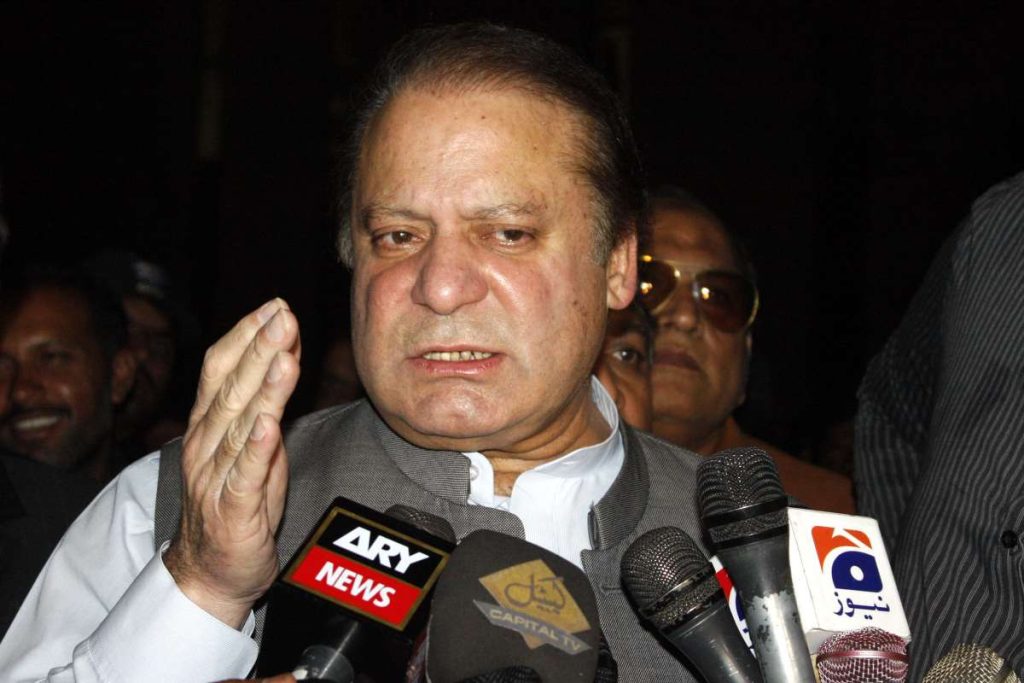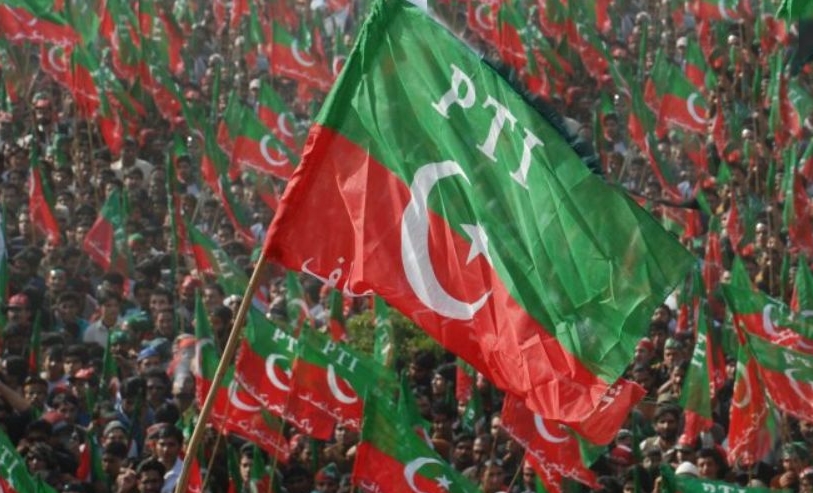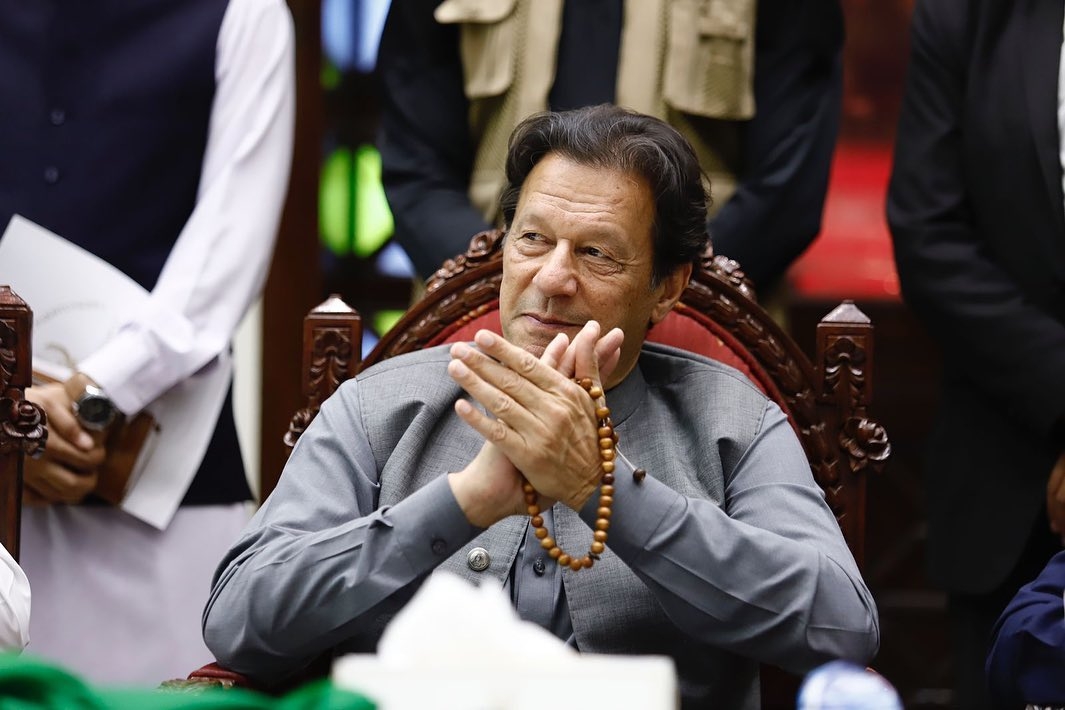Despite the Selection Commission of Pakistan obeying the GHQ Rawalpindi diktat that PTI elements be wiped out, followers of Imran Khan have emerged as the largest group in the National Assembly, writes Prof. Madhav Das Nalapat
GHQ Rawalpindi’s efforts have been accelerating since October 2023 to sufficiently break the spirit of former Prime Minister Imran Khan of Pakistan to the point where he comes crawling at the feet of the generals. Such is exactly the way a long procession of former Prime Ministers of Pakistan has done in the past. Thus far, the former cricket star has held firm in opposing Pakistan’s military dictatorship (known locally as the Establishment), despite the mental and physical torture being heaped on him, as well as on his family, friends and supporters.
Thus far, the cricketing star has remained bruised, abused but unbowed from within his prison cell, much to the dismay of Chief of General Staff Asim Munir, who has methodically orchestrated the campaign designed to either break the spirit of resistance of Imran Khan or to destroy him politically, if not physically.
Interestingly, an AI-generated voice purporting to reflect the views of Imran Khan on the election results has suddenly been aired. What seems odd is that the AI-generated audio of Imran requests his followers to “celebrate as PTI has won the election”. This is the reverse of the truth, as rigging by GHQ Rawalpindi has kept the seat tally of Imran-backing independents to a much lower tally than would be the case in a fair election.

The PTI-backed independents are a minority in the National Assembly, contrary to the AI audio assertions of a PTI “victory”. A hypothesis for such an audio clip getting released could be that the AI-generated voice clip was released to the public by elements linked to GHQ Rawalpindi so as to keep PTI supporters from rioting as a consequence of the rigging of the polls and the fixed match being held to ensure that Nawaz or Shahbaz Sharif becomes Prime Minister. Why would Imran Khan ask his supporters to celebrate such a situation?
Unless he publicly affirms that the clip represents his views, it is not certain that the views expressed in it are a genuine reflection of the views of the PTI supremo. The release of the audio clip could have been designed to have the effect of calming his supporters for long enough to give the heads of the Four Pillars of the state in Pakistan, the Army, the Air Force, the Navy and the paramilitary formations enough time to bribe and intimidate enough independents among the newly elected National Assembly members to ensure a sufficient majority for a government led by Nawaz or Shahbaz Sharif.
And to ensure that the law and order machinery is brought into shape to take care of the unrest that will follow when a Prime Minister other than Imran gets sworn in, especially Nawaz Sharif. Unless there has been a secret deal by Imran with GHQ Rawalpindi such that he is to be released from jail and made Prime Minister once again, there is hardly any cause for his followers to “celebrate victory”.
Chances of such a deal appear to be remote, given that Imran Khan once again becoming PM would this time around indicate that for the first time since the 1950s, the civilians have control of the gun rather than the other way around. No indication has come of such a shift on the part of General Asim Munir and his cohort of senior armed forces officers.

IMRAN WITHSTANDS PRESSURE
Imran Khan, who was once the favourite of the Pakistan Army, and facilitated by the generals to become Prime Minister in 2018, was removed subsequently by them in 2022. Imran himself claims that this is because he fell foul of the US administration, when as Prime Minister he made a trip to Moscow to meet President Vladimir Putin at a time when the latter was sought to be globally ostracised by the US and its European allies. A Pakistani diplomat stationed in Washington was indiscreet enough to relay on record the warning made to him by a US official that Pakistan should have a new Prime Minister “or else”.
Imran’s revealing that telltale telex in public was among the 150-plus criminal charges slapped on Imran Khan during 2022 and 2023, even though at the time he revealed the message while addressing a public meeting, it was dismissed as a fake by the very same Establishment (otherwise known as GHQ Rawalpindi) that subsequently prosecuted Imran Khan for thereby revealing “state secrets”. Not surprisingly, GHQ Rawalpindi’s staunch backer, PRC Central Military Commission Chairman Xi Jinping, did not try to prevent his dismissal or subsequently seek to rescue Imran Khan from the travail he began undergoing once ousted as PM.
Despite Imran Khan’s incarceration, the disbanding of his party, the Pakistan Tehreek-i-Insaf (PTI), the removal of the party symbol and the forcing of PTI candidates to stand as independents under adverse circumstances, it took widespread voter intimidation and use of fraud by the Selection Commission of GHQ Rawalpindi, also known as the Election Commission of Pakistan, to ensure that independents known to be PTI supporters have secured only around a hundred seats, an estimated 80 seats less than what a fair election would have given them.
Should Imran Khan withstand the pressure orchestrated by Munir to fall at the feet of the generals as he appears to have done so ever since his dismissal from office in 2022, it would place the men in khaki in a situation where even the Punjab province has turned against the three and four star generals, who run Pakistan through dummy civilian governments. It was Khan’s refusal to be a pliant pawn of GHQ Rawalpindi in all matters of consequence that led to his fall from grace. Had Imran been servile in the manner a chastened and disgraced Nawaz Sharif or Bilawal Bhutto are, he would by now have been out of jail and sent into comfortable retirement in London or Dubai.
DILEMMA FOR THE GENERALS
Imran Khan is the first Prime Minister of Pakistan who publicly took on the Pakistan generals and who has since remained unbowed. Z.A. Bhutto was murdered, as was Benazir Bhutto. The Sharif brothers as well as Zardari Senior (Asif) and Zardari Junior (Bilawal) have accepted the role ordained for them by GHQ Rawalpindi, and joined in the puppet show that masquerades as civilian rule in Pakistan. In contrast, thus far, Khan has not succumbed despite the hardship he is enduring, which is designed to make him a compliant instrument of the Establishment, otherwise known as GHQ Rawalpindi.
1970 was the last time a free general election was held in Pakistan. Given the results, the Awami League led by Sheikh Mujibur Rahman ought to have been invited to form the next government. Instead, Pakistan’s Supremo, Chief of Army Staff General A.M. Yahya Khan, sent the cruellest officer he could find, Lt Gen Tikka Khan, to Dacca to “sort them out”. Tikka Khan and the men under his command, joined by Wahhabi elements within what was then East Pakistan, launched a campaign of mass murder, rape and expropriation of property in what with help from India became within a year Bangladesh.
The genocide in Bangladesh conducted by Tikka Khan took place with the enthusiastic support of both Washington and Beijing, with the former providing much of the hardware that was used to murder hundreds of thousands of innocents simply because they were Bengali. Yahya Khan’s favourite, the former Foreign Minister in the Ayub Khan Martial Law administration, Zulfiqar Ali Bhutto, became the President of Pakistan in 1971 after Yahya resigned in view of the defeat of Pakistan forces at the hands of the Indian Army in what became Bangladesh.
As President, Zulfiqar Ali Bhutto was even more autocratic than Field Marshal Ayub Khan was, trampling over civil liberties with zest. In 1973, the vociferous India-baiter took over as Prime Minister, and chose the most servile of the Generals, Zia-ul-Haq, as the Chief of Army Staff. In his previous job, Bhutto had succeeded in snatching victory in 1972 through the jaws of defeat, by persuading Prime Minister Indira Gandhi to give up all of the Indian military’s gains in exchange for his “word of honour” that the Line of Control in Kashmir would be officially recognized as the international boundary, and that terror operations against India would stop. According to those privy to information related to Z.A.
Bhutto, the civilian Head of State began plotting vengeance against India as soon as he was airborne back to Rawalpindi from his discussions with Prime Minister Indira Gandhi at Shimla. Securing such a one-sided agreement (part of a lengthy list of similar agreements signed between India and Pakistan) did not save Bhutto from being dismissed in 1973 and later hanged in 1979 by his no longer servile but assertive successor through a military coup, General Zia-ul-Haq, who had for long privately regarded Bhutto as “not a good Muslim” and therefore unsuited to lead Pakistan as a consequence of Bhutto’s habits such as drinking alcohol on a daily basis and eating certain types of meat, exactly the way that M.A. Jinnah used to.

2024 IS NOT 1979
Zia used the cloak of a great faith to camouflage his intention of establishing a military dictatorship beholden to the Wahhabi International in Pakistan. He got away with it. But 2024 is not 1979, the year in which Wahhabi fanatics seized the Grand Mosque in Mecca, and Ayatollah Khomeini took control of Iran, a country that since then has witnessed neither peace nor prosperity. Reform is spreading, including in several regressive laws in some orthodox parts of Malaysia being struck down as unconstitutional by the Supreme Court in Kuala Lumpur.
Earlier, Saudi Crown Prince Mohammad bin Salman cut the historical link between the Al Sauds and the Wahhabi doctrine, and has placed the Kingdom on the road to modernisation and to the moderate ethos that underpins human values. In Iran, more and more citizens are openly opposing efforts at retaining the Khomeinist straitjacket over the Persian people, who have a history and traditions of several thousands of years.
Despite the Selection Commission of Pakistan having worked exceptionally hard to ensure that the diktat of GHQ Rawalpindi that the PMLN be the majority party and that PTI elements were wiped out, followers of Imran Khan have emerged as the largest group in the National Assembly. Significantly, actual voting (as distinct from the fake tallies of many NA seats announced by the Selection Commission) even in Punjab province has shown that disenchantment with the Pakistan Army has become widespread even in that most significant of provinces.
Should Imran Khan continue to withstand maltreatment (to relatively mild verbal blowback from the US, the UK, the EU, and of course the acquiescence of the PRC to GHQ manipulation), should he decline to bow to the generals, and should his supporters in the newly elected National Assembly not join the government that is to be set up except if Imran is made PM, there will be a multiplication of protests by millions of citizens who have finally understood, as has their leader Imran Khan, that the military in Pakistan is not the country’s saviour but its curse.
A VOTE AGAINST THE ESTABLISHMENT
Should Nawaz Sharif be anointed the next Prime Minister of Pakistan, he would of course obey GHQ Rawalpindi, but the people of Pakistan would not recognize him as their legitimate Head of Government, and would manifest such displeasure in numerous ways. And if Imran Khan bends under the punishment being given to him and his supporters, the backing of the people that the PTI supremo has at present would melt away, as has happened in the case of the Sharifs and the Bhutto-Zardaris.
The people of Pakistan have gone to the ballot box aware that a vote for Imran was a vote against the Establishment, which for the first time has become deeply unpopular in the Punjab in the same way that has long been the case in Khyber-Pakhtunkhwa, Balochistan and Sindh. Given the three-figure seat tally for Imran’s supporters despite widespread voter suppression and vote count manipulation, the ball is now in the court of the generals and to those in Beijing, Washington and other capitals. These so-called “well-wishers” of Pakistan have from the 1950s supported the men in khaki in matters of governance in Pakistan rather than the civilians. Such forces can scare or buy the elite, but cannot frighten or buy an entire people, and hence the election results that have been declared.
Across the world, attention is being given as to whether an unbowed Imran Khan will continue at the crease and hold firm, or whether he will join the Sharifs and Zardaris as courtiers of General Asim Munir. Whatever Imran’s decision or indeed fate, it is difficult to imagine that the people of Pakistan will once again return to the delusion that the generals in Pakistan are their saviours and not parasites preying on them.
ALSO READ: Guterres Urges Pakistan Election Harmony

Leave a Reply